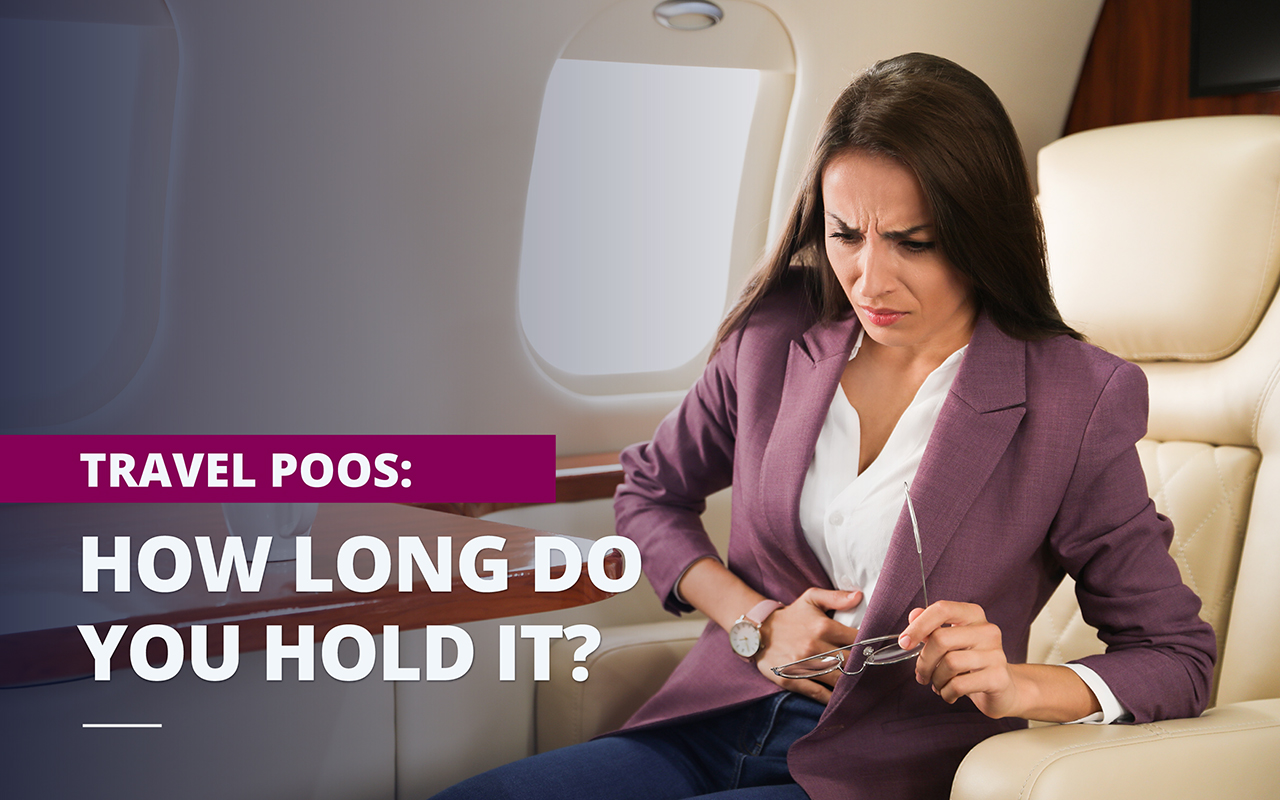
Public toilets can be a source of anxiety for many travellers, leading some to avoid them at all costs. Whether it's holding it in, searching for alternatives, or even resorting to extreme measures, people find creative ways to handle toilet emergencies on the road. This study explores the surprising lengths travellers go to when faced with unfamiliar or unpleasant toilet options — revealing everything from how long they hold it to the most dreaded facilities.
Key Findings
- 1 in 12 people have pooed themselves while travelling.
- 29% of travellers want to be compensated for sitting next to someone who farts, with Americans (33%) more likely than Brits (24%) to think so.
- 19% of travellers think passengers with smelly farts should be removed from a flight, with Gen Z (23%) being the most likely to agree.
- 40% of travellers have peed in a bottle when they couldn't find a toilet.
- 37% of travellers have gone without wiping due to a lack of supplies while travelling.
- 44% of travellers admit to having skipped washing hands after using the toilet while on vacation.
The Public Toilet Hesitation Dilemma
For many travellers, using an unfamiliar toilet is a last resort. Some will wait as long as possible before giving in, while others have strong opinions about what should — and shouldn't — happen in shared toilet spaces, especially on planes.
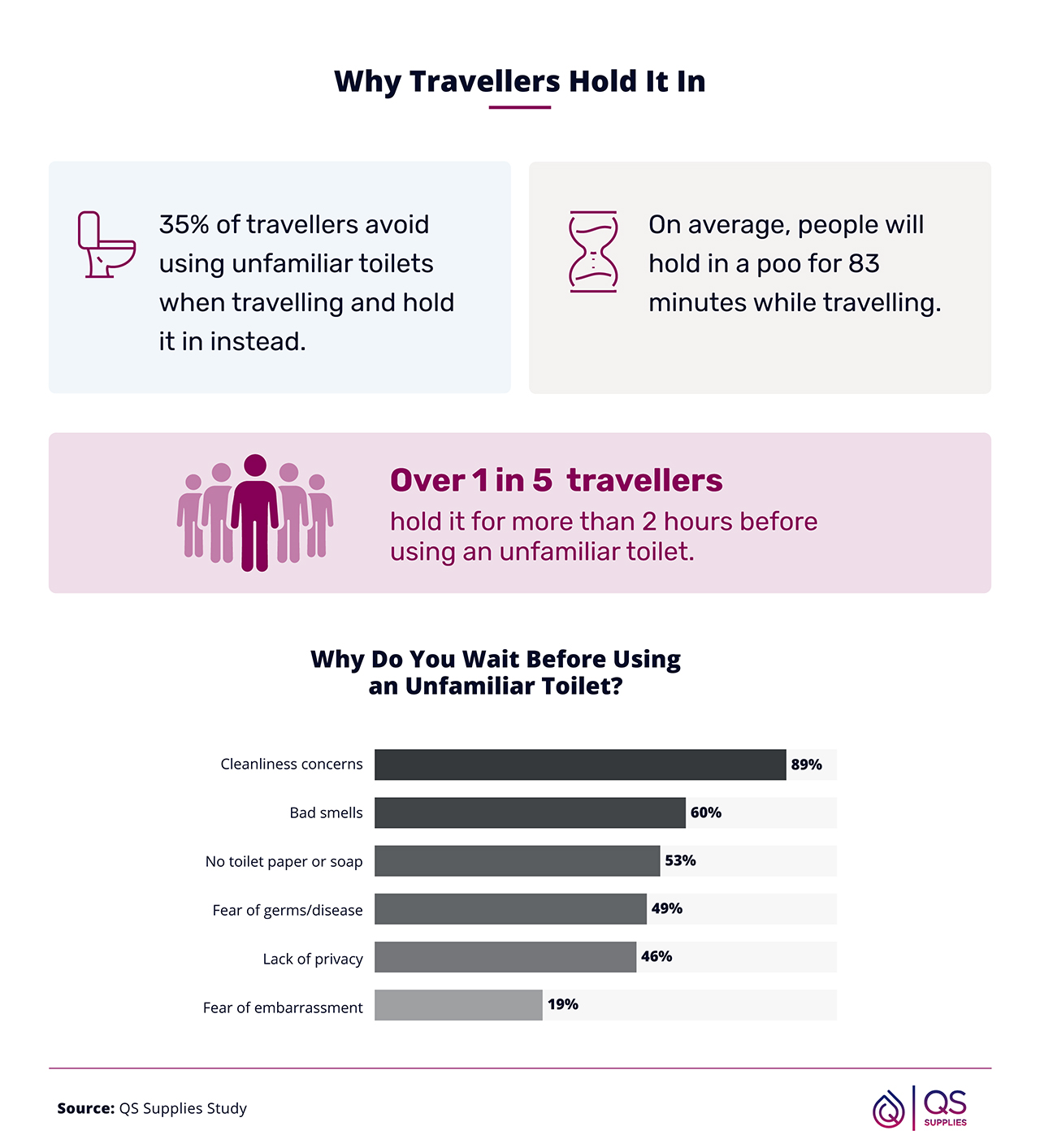
Brits tend to hold it longer than Americans, waiting 90 minutes on average before using an unfamiliar toilet while travelling, compared to 79 minutes for Americans. This hesitation extends to the air as well, where opinions on in-flight etiquette vary. More than half of travellers (52%) believed people should never fart on an aeroplane and should hold it in, with Americans (54%) more likely than Brits (47%) to agree.
The debate doesn't stop there. Nearly 1 in 5 travellers (19%) thought passengers with particularly smelly farts should be removed from a flight, with Gen Z (23%) being the most likely to support this extreme measure. Some even believed there should be compensation involved — 29% of travellers said they should be reimbursed for sitting next to someone who farts, with Americans (33%) more likely than Brits (24%) to feel entitled to a refund.
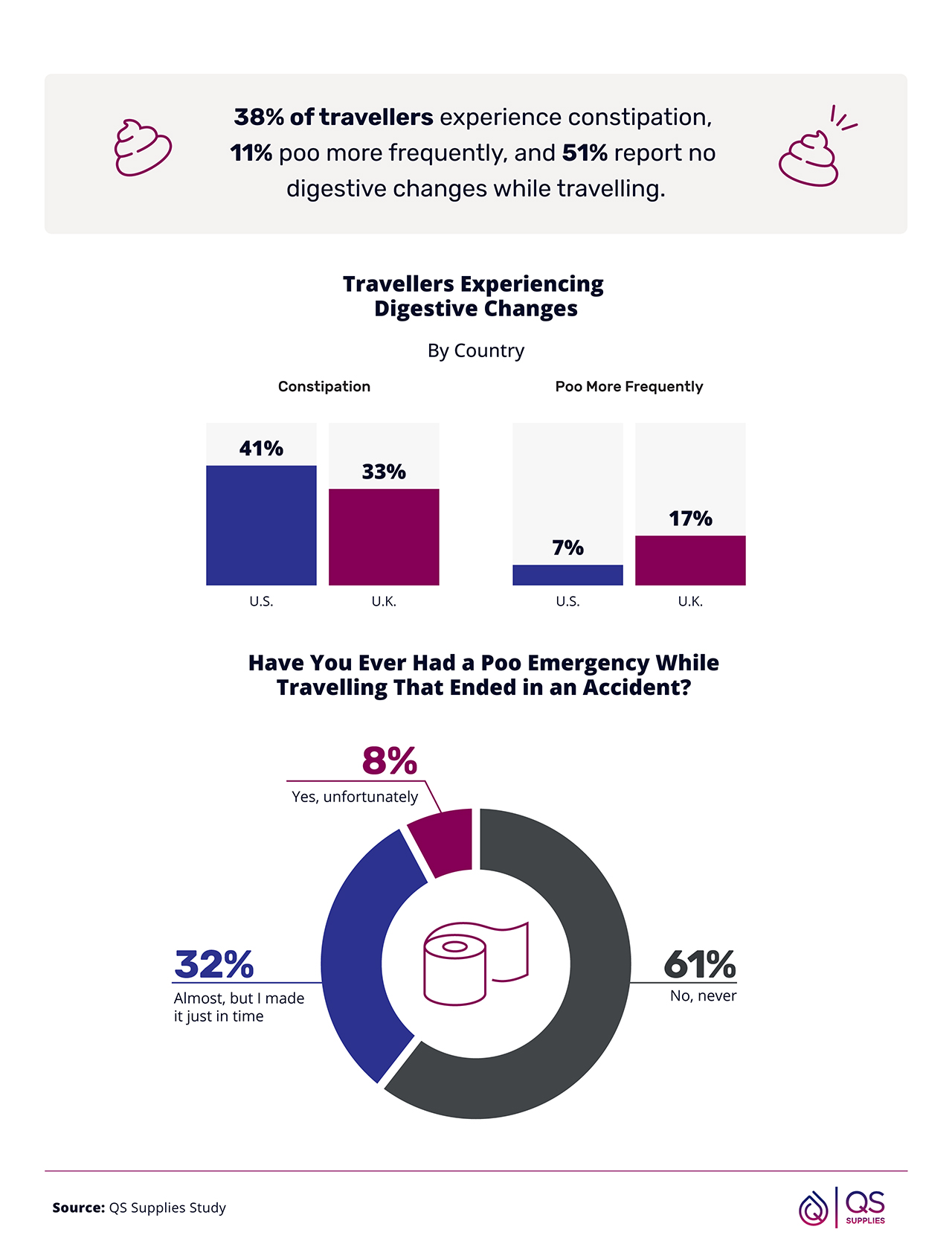
Embarrassingly, 1 in 12 travellers admitted to having pooed themselves while travelling. Brits (9%) were slightly more likely than Americans (7%) to report this unfortunate mishap. The struggle isn't entirely random, as some destinations appear to be more troublesome for digestion. The U.S. (21%) ranked as the top country where travellers experience digestive distress, followed by Mexico (11%) and Spain (7%).
For Brits, Spain (13%) was the worst offender for stomach troubles, while for Americans, it's their own country (30%). Whether it's unfamiliar food, travel stress, or something in the water, some places leave visitors regretting their last meal.
Worst Public Toilet Nightmares
Not all facilities are created equal, and for some travellers, certain ones are best avoided altogether. Whether it's a cramped space, poor hygiene, or sheer discomfort, travellers have strong opinions about their worst public toilet experiences, and many take precautions to prepare for the worst.
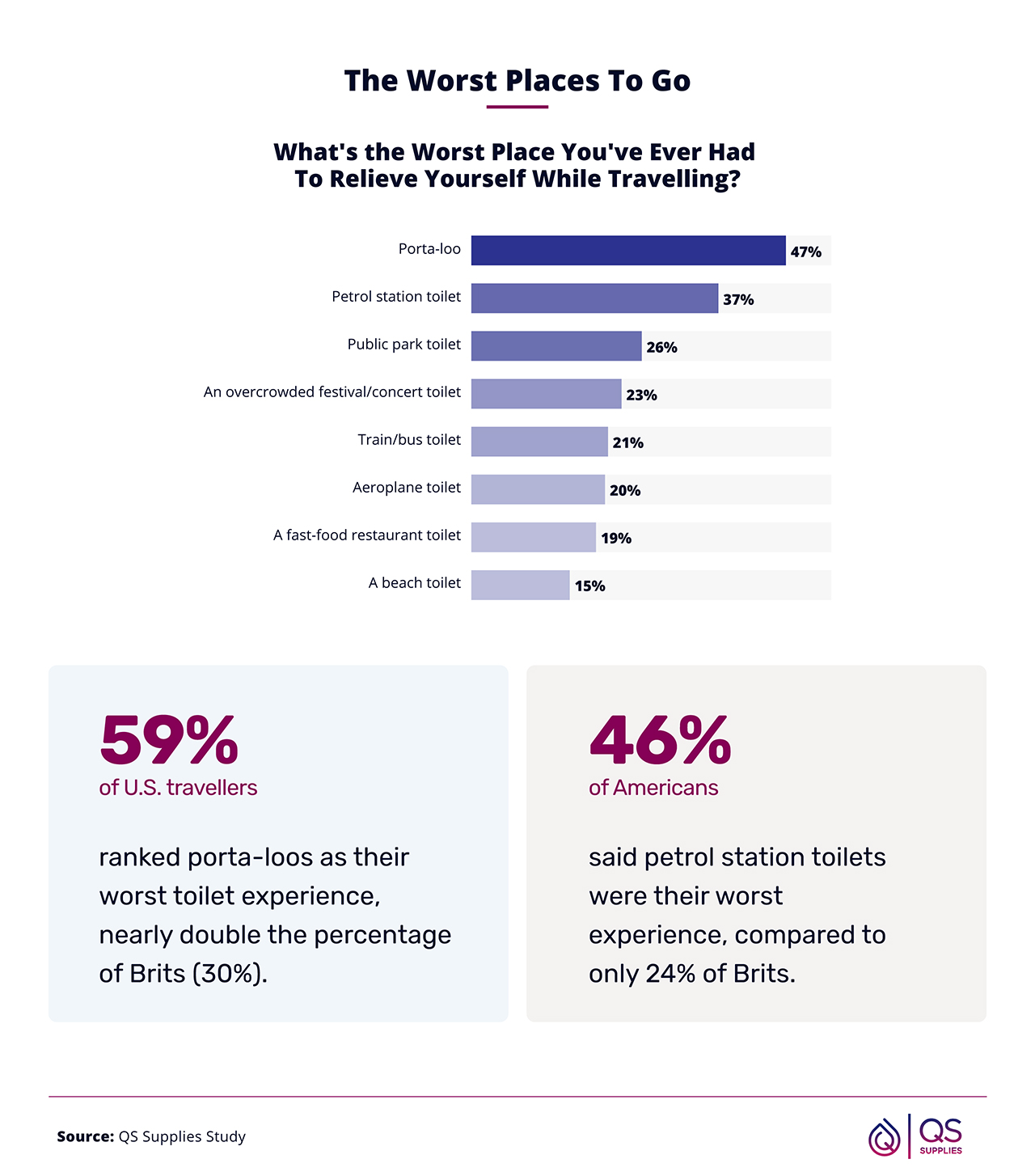
Among younger travellers, Gen Z (52%) was the most likely to rank porta-loos as their worst toilet experience, while 26% of them also called out fast-food restaurant toilets as the most unpleasant. When it comes to transportation, buses (41%) were rated as having the worst toilets, followed by petrol stations/motorway service areas (28%), aeroplanes (18%), and trains (13%).
Many travellers anticipate these challenges and come prepared. A significant 66% carry a "toilet emergency kit," with the most common items being hand sanitiser (53%), wet wipes (36%), and toilet paper (17%). A smaller percentage pack toilet seat covers (4%) or flannels (2%), a washable alternative to toilet paper. For those wary of questionable facilities, a little preparation goes a long way.
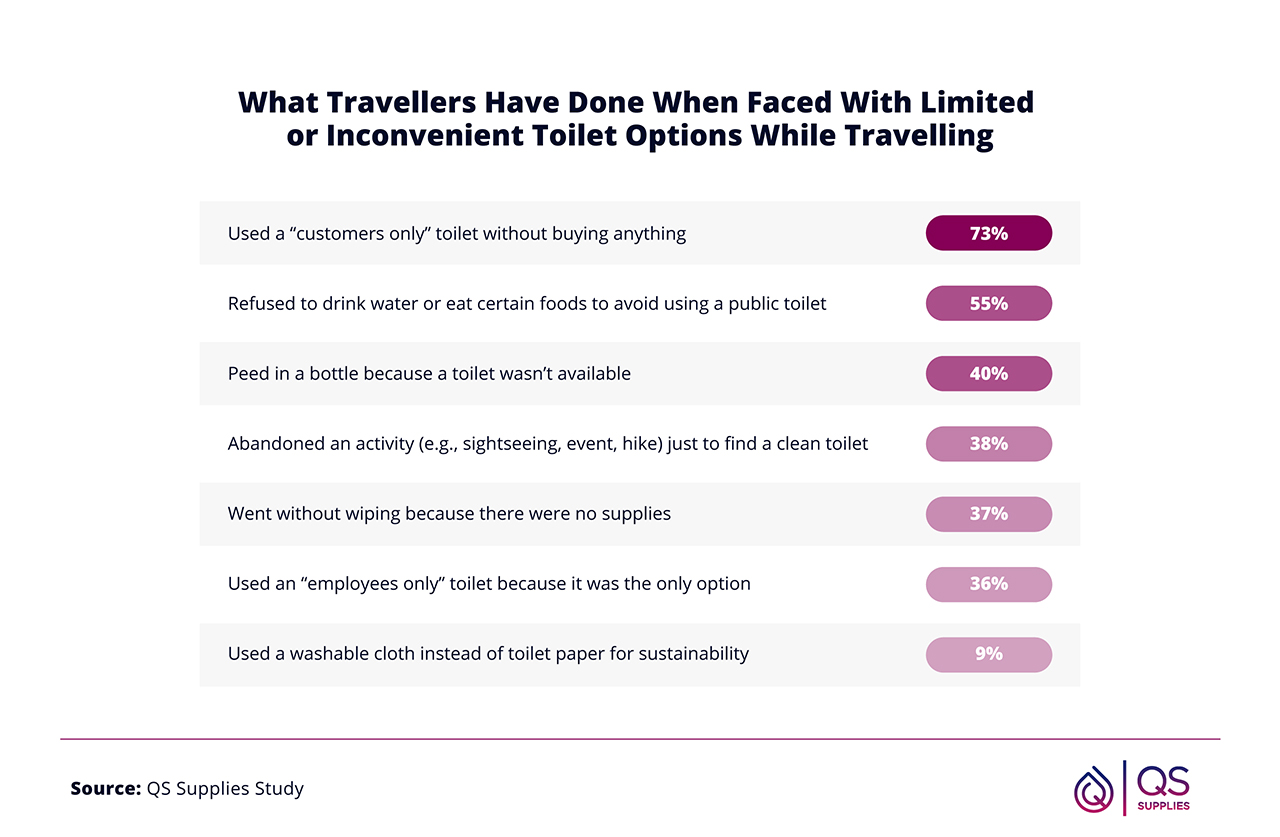
A surprising 40% of travellers have resorted to peeing in a bottle when they couldn't access a public toilet, with Americans (42%) more likely than Brits (36%) to have done so. Among generations, Gen Z (43%) led the way in this improvised solution. But running out of supplies can be even worse — 37% of travellers have had to go without wiping due to a lack of toilet paper, with Gen X (38%) being the most likely to face this situation.
Some travellers find alternatives when toilet paper is unavailable: 12% of Brits have used a washable cloth, compared to 8% of Americans, with Gen Z (12%) being the most open to this method. However, not everyone keeps up with hygiene, as 44% of travellers admitted to skipping handwashing while on a trip, including 45% of millennials, making them the worst offenders. Whether due to inconvenience or necessity, some travellers are forced to get creative in ways they'd rather forget.
Travellers' Biggest Public Toilet Icks
When faced with unfamiliar toilets, travellers take different approaches. Some plan ahead, while others resort to the great outdoors. Generational differences reveal who is most likely to research facilities in advance and who is willing to go wherever necessary.
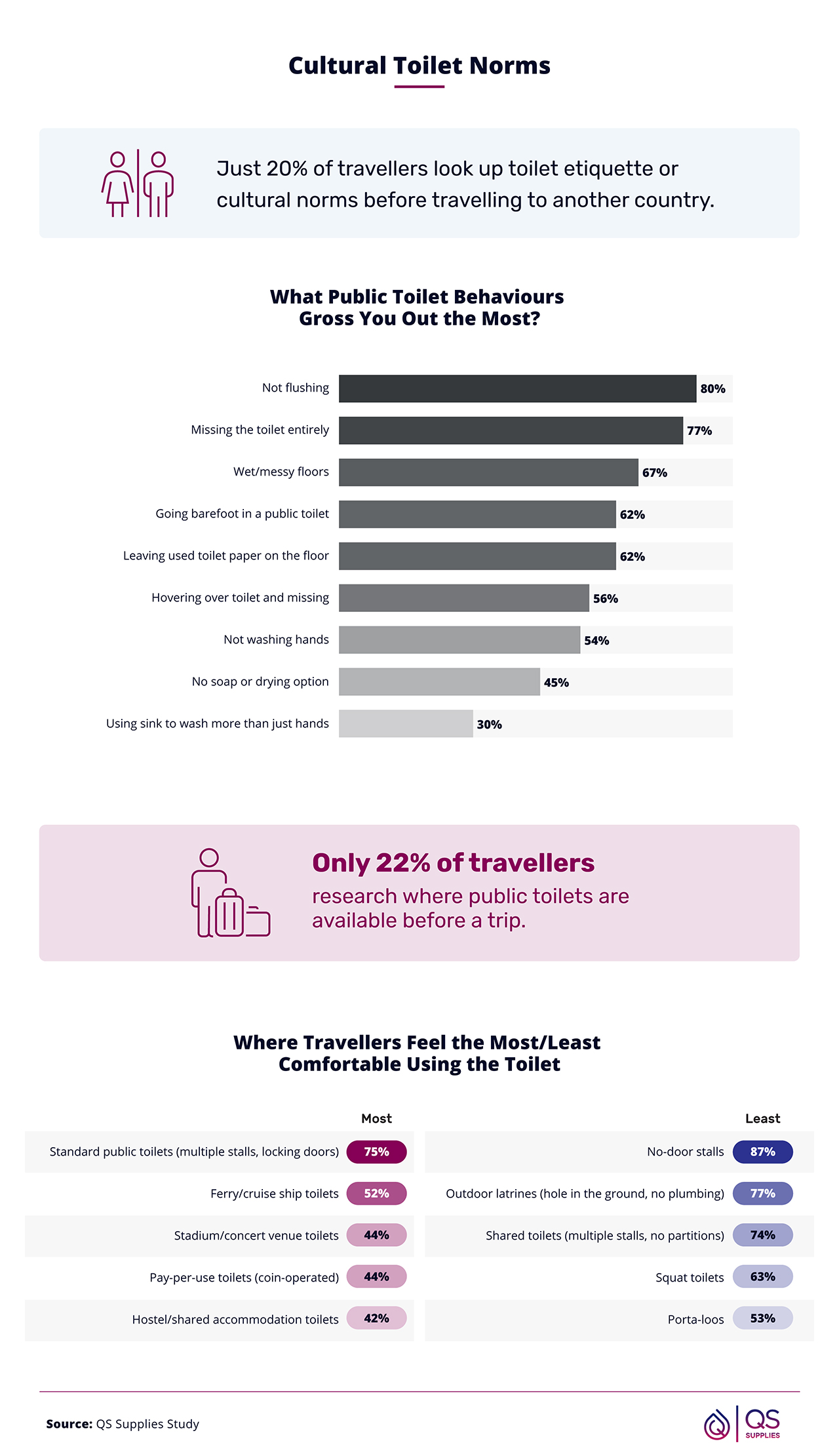
Gen Z (28%) was the most likely to research public toilets before their trip, ensuring they knew where to find a clean and accessible facility. However, not everyone has the luxury of planning ahead. Nearly 1 in 4 travellers (23%), including Brits (24%) and Americans (23%), have relieved themselves outdoors while travelling.
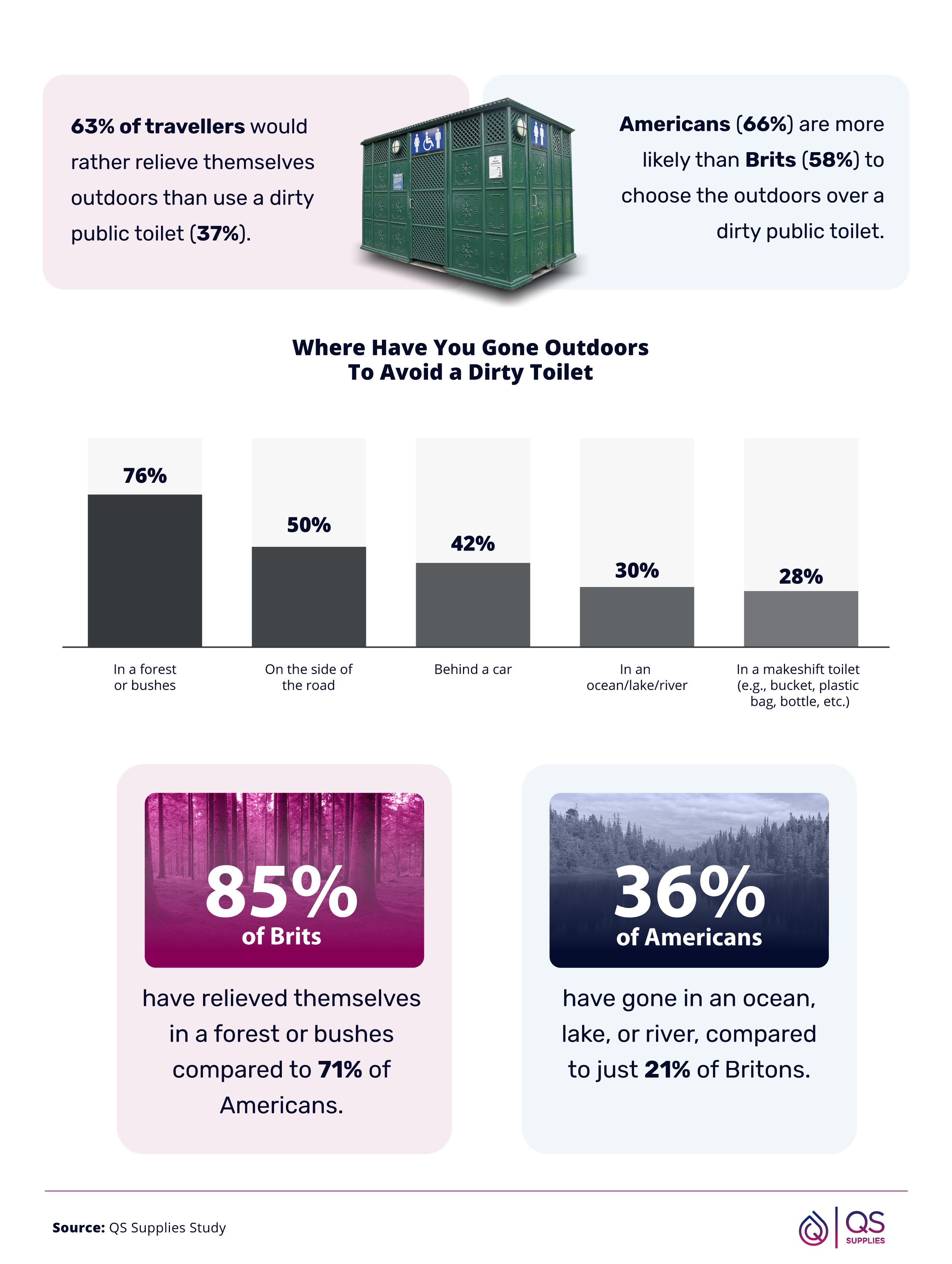
For some, avoiding a dirty public toilet is worth taking extreme measures: 89% of baby boomers have opted for the cover of forests or bushes, making them the most likely generation to do so, compared to 72% of Gen Z. Water sources also serve as an alternative. Baby boomers (42%) and Gen Xers (35%) have gone in a lake, river, or ocean, while only 22% of Gen Z and 28% of millennials have done the same.
What Makes Travellers Avoid Unfamiliar Toilets?
Toilet struggles are an unavoidable part of travel, and people handle them in vastly different ways. While some plan ahead to avoid discomfort, others find themselves making split-second decisions — sometimes in less-than-ideal circumstances. Whether it's carrying an emergency kit, researching public toilets, or resorting to outdoor alternatives, one thing is clear: when nature calls, travellers get resourceful.
Methodology
We surveyed 1,017 travellers to explore toilet habits, the worst public toilet experiences, and cultural norms surrounding public toilets. Among them, 60% were from the U.S. and 40% from the U.K. The generational breakdown was as follows:
- Gen Z: 19%
- Millennials: 50%
- Gen X: 24%
- Baby boomers: 7%
The data was collected in February 2025.
QS Supplies
QS Supplies is dedicated to delivering exceptional bathroom solutions with a focus on quality and style. Our product range features everything from versatile bathroom accessories to luxurious shower enclosures, making us the go-to destination for all your bathroom needs.
Fair Use Statement
Sharing this content for noncommercial purposes is allowed with a link back to the source.
